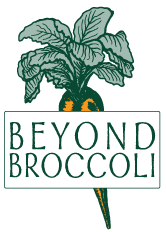Individual Mental Health Counseling/Psychotherapy
Individual psychotherapy is a time to explore what keeps you from living the life you want to live. Change is hard, even when it is something you want and/or need. When you are feeling depressed, anxious or overwhelmed, it can be hard to know what needs to change to help you feel better.
I am here to listen to your story, with compassion and caring, and to help you figure out what keeps you stuck, what may move you forward, or help you be okay with where you are. My goal is for you to feel empowered.
I use a variety of therapeutic techniques in my work depending upon your individual needs and goals. In addition to my training and experience as a clinical social worker, my background as an eating disorder specialist dietitian, includes work with a variety of behavior-based therapies like CBT, ACT and DBT skills. Since a lot of clients aren’t quite sure what needs to change or if they are ready for next steps, motivational interviewing can be helpful. I completed basic training for EMDR (Eye Movement Desensitization and Reprocessing) therapy in 2020, a powerful tool for working through traumatic events that interfere with how you function right now. I also have a nerdy fascination with neuroscience and embrace many of the findings from Positive Psychology research. The reality is that no one treatment approach works for everyone, so I stay open to a variety of ways that may help my clients.

Special Areas of Practice
- Eating Disorders and any other problems related to food, exercise, weight, and body image
- Substance Use Disorders
- Life transition challenges
- Relationship issues
Eating Disorder Treatment – Psychotherapy
Psychotherapy is the cornerstone of treatment for an eating disorder. As described on my Nutrition Services page, the ‘Best Practice’ for eating disorder treatment consists of a multi-disciplinary team of professionals. This includes a therapist, medical provider, dietitian, and sometimes a psychiatrist or psychiatric nurse practitioner to prescribe medications as an adjunct to therapy.
In the eating disorder treatment field most of the continuing education (conferences, webinars, etc.), targets the multi-disciplinary team. This means that for more than a decade I have attended trainings alongside therapists, medical providers, psychiatrists, and other dietitians, learning the whole spectrum of areas involved in these complex disorders. My 400-hour clinical social work internship at the Center for Change (CFC) in Orem, Utah affirmed how much my training as an eating disorder dietitian prepared me for my work as a therapist. Specializing in all levels of eating disorder treatment, CFC provided me with an incredible experience in my new role on the treatment team.

Alcohol and Drug Problems
Substance Use Disorders, involving alcohol and/or drugs, are complex problems that may happen suddenly or develop over time. During my advanced clinical internship and post-graduation employment I have had the opportunity to work with a wide variety of clients struggling with these issues. I knew going into this work there is a lot of crossover between disordered eating and exercise issues and substance abuse problems. What I didn’t know is that I could be as passionate about my work with substance abuse as I am with eating disorders.
We live in a culture that promotes a variety of substances as ways to celebrate, cope with difficulties, connect with others socially, and relax at the end of a hard day. These substances include food, alcohol, drugs (prescription and recreational), caffeine, etc. Determining when a substance shifts from helpful or at least acceptable, to problematic, is not as easy as it sounds. I work with clients to understand the role substances play in their lives (past and present), how it impacts their relationships and other important aspects of life. For many people, group therapy and/or self-help programs such as AA, NA, Recovery Dharma, SMART Recovery, etc. are an important part of recovery from a substance problem. Therapy is often an important part of the “discovery” process that supports recovery.
I recommend an initial psychotherapy session to assess your substance use and discuss the level of care that is appropriate for you based on the guidelines put forth by ASAM (American Society of Addiction Medicine) and DSM-5 (Diagnostic and Statistical Manual of Mental Disorders, 5th Edition) criteria.
Going forward I hope to establish groups that may be helpful for clients struggling with a variety of problems involving substances. If you are interested in such groups feel free to email me and I will keep you informed of any new services Beyond Broccoli™ provides.


